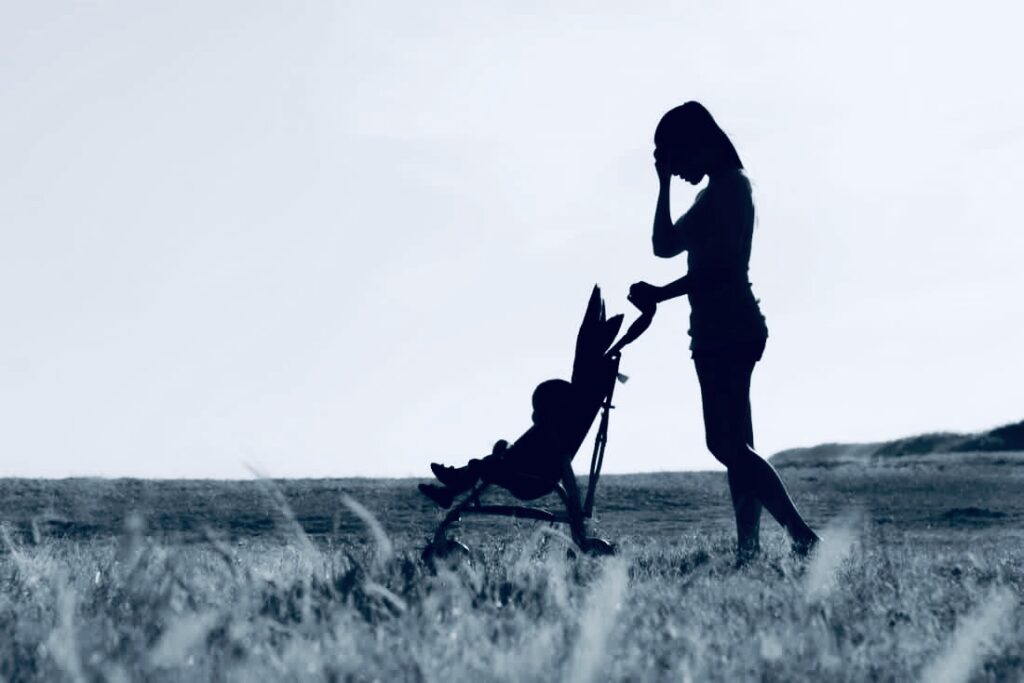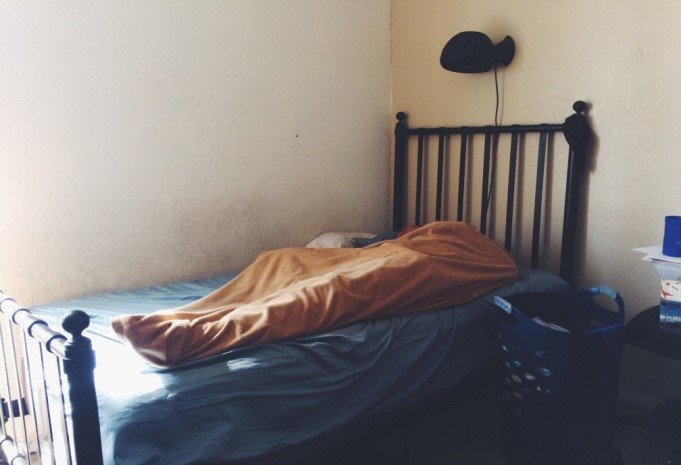The birth of a new baby is a wonderful event and a time for everyone to celebrate. However, for up to 15% of mums it’s a time when they get hit by a specific form of depression – PND or PostNatal Depression.
This can be a serious form of depression, also sometimes called Post-Partum Depression.
All around you, people are celebrating but you feel anxious, sad and hopeless. Colour is drained out of your world and your life is bleak.
If you experience postnatal depression severely, it is very important to get professional help straight away. Help is available at Safe Place Therapy.
Recent research by scientists shows how important a secure and loving attachment between a mother and a new baby is. Babies can’t explain their feelings, but they can become traumatised if they sense or experience negativity, neglect or rejection from their mother-figure.
The theory of secure attachment is much better understood now than even a decade ago and babies or other young children, such as older siblings, can experience severe issues in later life if they don’t have a stable and secure bond with their primary caregiver.
The team at Safe Place Therapy are very experienced in helping mothers get through these kinds of difficulties. With the right expert counselling, conquering Post-natal depression is achievable at this exciting and happy time in your life.
What Exactly is Postnatal Depression?
Postnatal Depression is not simply a few days feeling tired or run-down after birth – that is normal. If you are saying to yourself “I’m hormonal and my mood is erratic – do I have PND?” then the answer may be ‘no’.
The symptoms of true postnatal depression are very similar to the symptoms of other forms of depression.
These can include:
- loss of interest in life,
- irritability,
- sadness,
- fatigue or lack of motivation for most days over the course of two to three weeks.
You may experience other symptoms such as:
- hopelessness,
- anxiety,
- self-critical thinking,
- low self-esteem and self-confidence,
- disturbed sleep (not simply due to baby waking up), and
- changes in appetite.
Some new mums may feel they are alienated from their babies. Furthermore, in some extreme cases, some new mums experience thoughts about self-harm and/or harming their babies. However, luckily it is very rare for women to act on these negative thoughts.
Very occasionally, a severe form of post-natal depression can occur which includes psychosis. This needs immediate treatment. Luckily it is very rare.
The film ‘We need to Talk about Kevin’ shows an intelligent, capable career woman, played by Tilda Swinton. She experiences severe post-natal depression with the first but not the second of her two children.
The lack of secure attachment to her first child is the central topic of the film. Now, the film is fiction, and paints an extreme picture, however it is based on fact.
The good news is that effective help for post-natal depression is out there. Now let’s look at some of the causes and how those causes can be treated.
Causes
Like all mental well-being topics, the full causes of PostNatal Depression are not understood. What we do know is that it goes beyond rational concerns about rearing children. And it is a combination of biological and psychosocial factors.
Recent research has shown that fixed genetic predispositions and variable hormonal changes may both play a role in the triggering and development of postnatal depression.
Environmental factors such as stresses in other parts of your life, lack of social support, and financial anxiety may all play a part.
We also know to have a pre-existing history of depression, bi-polar or uni-polar behaviours, anxiety etc. may significantly increase the risk of developing a mental health problem after giving birth to your child.
There is also some evidence suggesting that some cases of postnatal depression begin in pregnancy or pre-pregnancy, rather than after birth takes place.
Finally, alcohol or substance abuse, while not causing postnatal depression, adds further complications. This is another reason, in addition to harming the baby in your womb, why Safe Place Therapy believes you absolutely should not be drinking or drug taking at this time in your life.
If you have issues in these areas, we can provide confidential, non-judgmental and effective help and support as part of our services.
Treatments
At Safe Place Therapy we know that with the right treatment and support, you will make a full recovery, although it can take a little time.
The main types of treatment for PostNatal Depression are:
Counselling and therapy.
Often this is based on Cognitive Behavioural Therapy (CBT) which is an evidence-based, proven approach.
Self-help strategies linked to therapy.
Self-help is much more effective when linked to therapy. In order to fix a problem, you first must fully understand what it is (and what it isn’t).
Today, there is an issue with ‘Dr Google’, where untrained people either try to treat themselves or get into discussions on social media. In these discussions with other untrained people, there may be bizarre, unhelpful, or even harmful advice. This approach is risky and difficult for a Mum who is already struggling.
Medication linked to therapy.
Note that Antidepressants are usually only recommended for severe episodes. This is because they can have side effects. And they do not treat root causes, only symptoms.
You also need to take care of your physical health, to see if there are any related problems that may need to be addressed as well, such as being anaemic after giving birth.
Self-help for Postnatal Depression
All therapy also includes a strong amount of self-help. In this section’ we’ll look at some practical and effective steps you can take. These include:
- Talking to your parents, partner, friends and other families. You should try to help them understand what you’re feeling and what they can do to practically support you. If you also have older children, one practical suggestion is that family or friends spend more time with them. This helps take some pressure off you and in fact, is a generally good thing for your older kids, too. What’s more, it can be fun for everyone. Accept help from others when it’s offered. Ask your loved ones if they can sometimes help look after the baby. And ask if they can do tasks such as housework, shopping etc.
- Resting whenever you can. It can be difficult to rest when you’re looking after a baby. So try to grab a nap or a short sleep whenever you get the chance.
- Exercising regularly to boost your mood. Check out your area for organised Mum and baby activities. Chances are you are not the only mum looking for this and finding like-minded other mums is helpful and positive.
- Not drinking alcohol or taking drugs, as this can make you feel worse and is very unhelpful for your child.
We can help
Support is available. Contact us at Safe Place Therapy. You’ll find we’ll be able to help you get you back to your best and enjoy this amazing time in your life.



